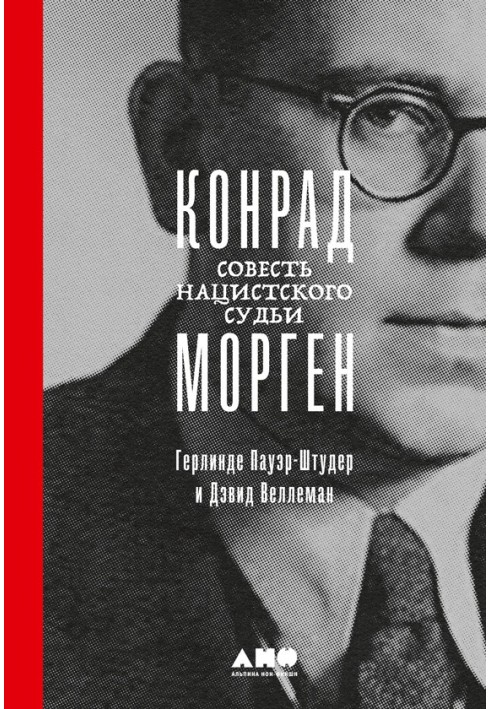Conrad Morgen. The conscience of a Nazi judge
 Instant download
Instant download
after payment (24/7)
 Wide range of formats
Wide range of formats
(for all gadgets)
 Full book
Full book
(including for Apple and Android)
The little-known story of a member of the SS judiciary who came face to face with the Nazi mass murder machine and began to fight it to the best of his ability. Investigating corruption crimes in concentration camps, SS judge Konrad Morgen exceeded his authority and began to prosecute the main perpetrators of Hitler’s “Final Solution of the Jewish Question,” bringing murder charges against the commandant of Buchenwald and the Gestapo chief of Auschwitz. “The will (will) and the personality of the criminal were now also taken into account. The commission created by Hitler and headed by Gürtner approved the system of criminal liability for intent.” The Morgen case reveals the connection between totalitarianism, corruption and genocide and raises many moral issues. The book is interesting for its judgments from the field of legal philosophy and information on the history (including legal) of the Third Reich, but, first of all, it is about how individual people have to make difficult moral choices and how the morality of one person tries to resist the immorality of the world around him. “Many post-war theorists believed that the experience of the Third Reich had taught us that we needed to establish a closer connection between law and morality." When Joven was tried after the war, he tried to justify his murders - which he admitted - by saying that the victims were "traitors." and because of them even more people could have died.”
Data sheet
- Name of the Author
- Герлинде Пауэр-Штудер
Дж. Веллеман Дэвид - Language
- Russian
- Translator
- Юрий Чижов
Reviews
Вражаюча та глибока книга про моральні дилеми
Книга "Конрад Морген. Совість нацистського судді" є неймовірно важливим твором, який відкриває завісу над складними моральними виборами, з якими стикаються люди в умовах тоталітарного режиму. Автор майстерно розкриває історію Конрада Моргена, судді СС, який, незважаючи на свою належність до нацистської системи, наважився виступити проти жорстокості та корупції, що панували в концентраційних таборах. Ця книга не лише розповідає про історичні факти, але й піднімає важливі питання про моральність, відповідальність та межі людської совісті. Читачі отримують можливість замислитися над тим, як окремі особистості можуть впливати на систему, навіть коли вона здається непереможною. Завдяки поєднанню історичних даних, філософських роздумів та глибокого аналізу, ця книга залишає незабутнє враження і спонукає до роздумів про етику в сучасному світі. Рекомендую всім, хто цікавиться історією, правом та моральними питаннями!













